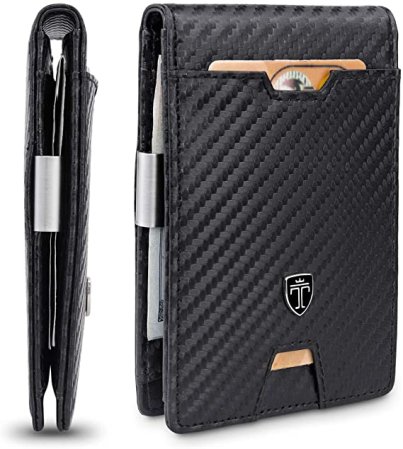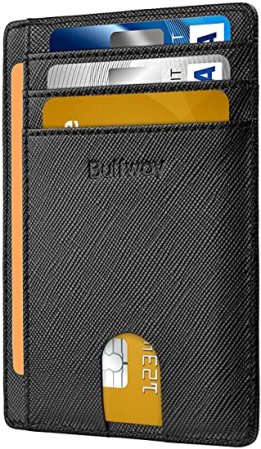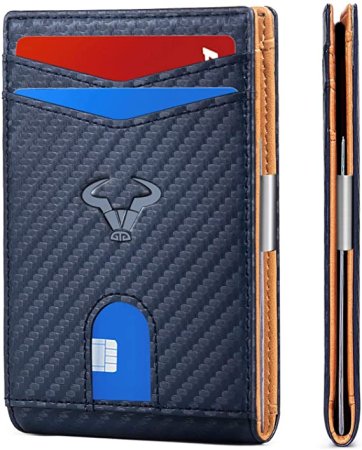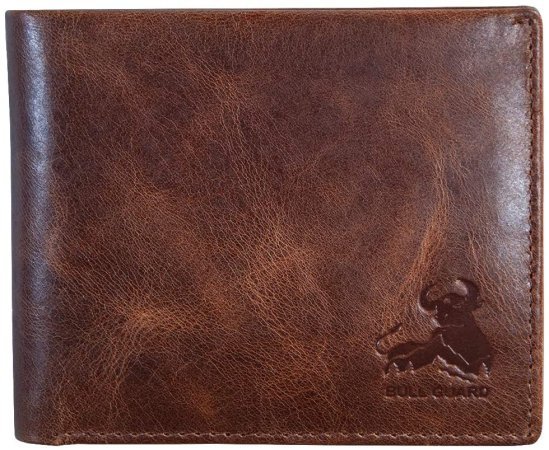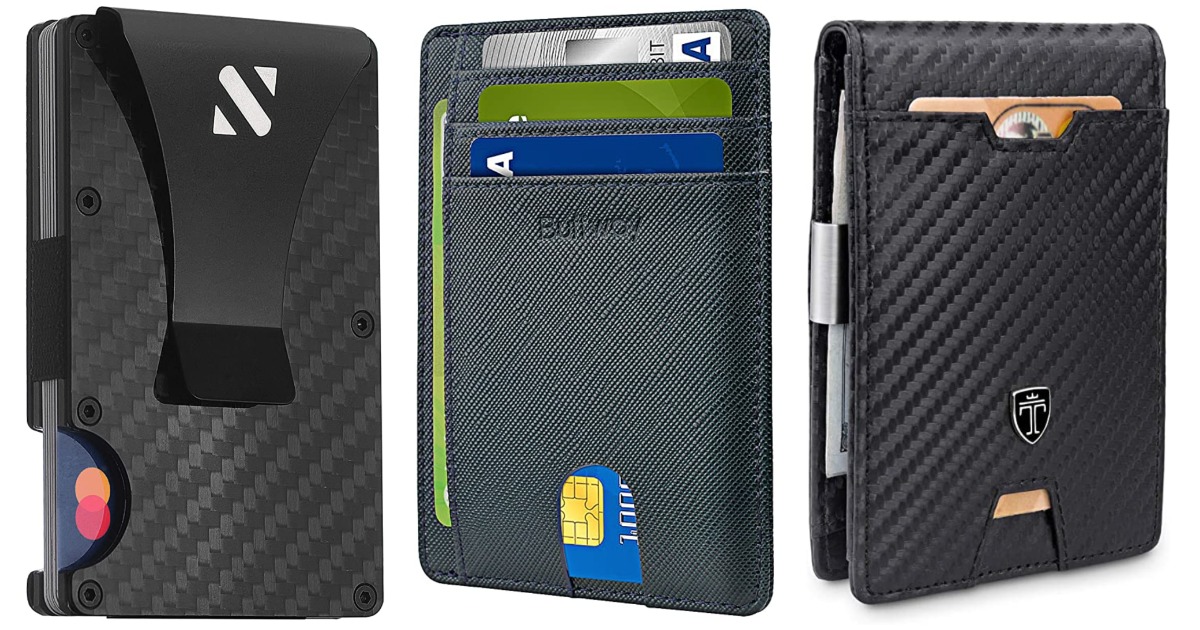

We may earn revenue from the products available on this page and participate in affiliate programs.
When you leave the house, what are the two things you grab instinctively? That’s right: your keys and your wallet. Carrying a wallet is more than a convenient way to keep your cash and driver’s license close: a good wallet lets you both store essential documents discreetly and flash your credentials with authority. Compact and concealed, a solid wallet lets you reach into your pocket seamlessly and effortlessly access everything from personal information to notes. Whether you want to showcase your bona fides or simply pull out a couple of bucks for a cup of coffee, you’re kind of up the creek without a solid wallet to carry essentials.
Even if you love your wallet, it might be time for an upgrade. To lend a hand, we’ve broken down the best wallets around so you’re never caught off guard.
Travando Slim Wallet
Buffway Minimalist Wallet
Bulliant Leather Wallet
Bull Guard RFID Wallet
Related: 6 minimalist wallets that are fit for duty
Why should you trust us
Bringing to the table five years of product review experience, I use my academic background in science to offer objective assessments of a wide range of gear. Focused mainly on tactical supplies, survival tools, and automotive products, I help readers get information on essential items. My work is featured on Car Bibles, The Drive, and Narcity Media. Among my most recent articles for Task and Purpose are reviews of bug-out backpacks, two-way radios, and knife sharpeners. Whether it’s for everyday gear or tactical supplies, my aim is to provide actionable advice on which readers can rely.
Types of wallets
Slim wallet
If you’ve ever dealt with a bulky wallet that won’t slide into your pocket, you’re familiar with the value of a slim wallet. The minimalist design is meant to help you keep the essentials (and only the essentials) on your person. That means it has fewer card holding pockets and a small opening for cash. Most don’t incorporate closures, using the pressure of the design to hold your items firmly in place. The compact structure is geared towards those looking to cut through the noise and only carry the things actually necessary to function.
RFID wallet
A modern type of wallet, the need for protection against data theft is relatively new. Designed to block radio frequencies from accessing the cards inside the wallet, these are built to resist RFID skimming. It all comes down to the material used in construction. Leather offers a baseline level of protection, though more advanced materials like carbon-fibre and aluminum go one step further. This type of wallet is designed for those who always carry their credit and debit cards and want to prioritize personal security.
Bifold wallet
Often called a billfold wallet, this type touts a more traditional design. Popularized when paper money became prevalent, the bifold wallet originally had few card compartments (originally used for business cards). Modern designs keep the original structure that opens at the center, though add in extra openings for cards. The textile structure ranges in material from leather to nylon, though many prefer leather for its natural level of RFID protection.
Key features
Cash holding
Even if you prefer to do your transactions digitally, carrying cash is always wise, which means your wallet needs to accommodate. Quality wallets feature a compartment for your cash, though its size and accessibility differ based on the type of wallet. Bifold wallets have the biggest opening, while minimalist designs incorporate a smaller slot. The key is that the wallet has space for you to safely store your bills so you can access them as needed.
Card holding
From your USPIC card to other ID, credit to debit, a worthy wallet needs to be able to house all of your essential cards. Even with a slim design, you can expect your wallet to support 11 cards. Depending on the wallet design, there will be a clear compartment for photo ID or an opening to let you use tap features for financial transactions. The most important part of this feature is that the wallet holds your cards tightly, preventing them from slipping out of place while you move around.
Security
From literal pick-pockets to the risk of digital information theft, a wallet is an important line of defence both monetarily and personally. Most wallets incorporate some protection against radio frequencies, referred to as RFID security. This feature relies on the material, so if you want that benefit, look for leather or carbon-fibre wallets. The other security component lies in the physical design. To avoid bulk, most wallets don’t use snaps or zippers. As a result, it is imperative that the wallet tightly hold cash and cards in order to secure your goods.
Benefits of wallets
- Access to money: One key advantage of having a wallet on your person is that it makes carrying cash and cards easier. Whether you store your finances in a bank account you access via debit or simply in cash, keeping a wallet on your person means you’ll always be able to access your money.
- Proof of identity: Some states have ‘Stop and Identify’ regulations in place, making it legally necessary to have your identification. Even if you aren’t in these jurisdictions, keeping ID on your person is important to drive a car, get a military discount, and do a whole host of other activities.
- Souvenirs and keepsakes: Multitools are popular for versatility, a trait that applies to wallets too. Sure, you use your wallet to store cards and cash, but what about that photo of your wife and kids? It’s those kinds of things that get you through tough times, and it’s your wallet that keeps those items close.
- Convenience: While you could, technically, just tuck your cards and cash into the pockets of your cargo pants or in your backpack, it will probably be tricky to access them. Instead of holding up a line in the store or scrounging awkwardly for change with your barista, just keep your things together in a wallet.
- Prevents risk of loss: Another advantage is a wallet’s ability to prevent you from losing your cards and cash. Pockets get holes. Things fumble and fall. It’s easier to drop a dollar bill than a whole wallet. Instead of running the risk, plan ahead and store your supplies in your wallet.
Wallet pricing
- Under $20: For those focused on affordability, there are some reasonably effective wallets in this price range. Most are fairly compact and less durable, so for long-term use, it may be better to move onto the next bracket.
- Between $20 and $30: This is the sweet spot for high-quality wallets. In this price range, you can maximize storage, optimize security features, and find a wallet that will last.
How we chose our top picks
We began vetting products by looking into the most useful and popular types of wallets. From there, we investigated the different designs and materials used to craft wallets. Armed with a full picture of the wallet landscape, we made a shortlist of options. By analyzing the structure and benefits of each contender, and factoring in user reviews, we were able to generate an honest list of the best wallets on the market. The result is a breakdown of secure, durable wallets with an option for every budget.
